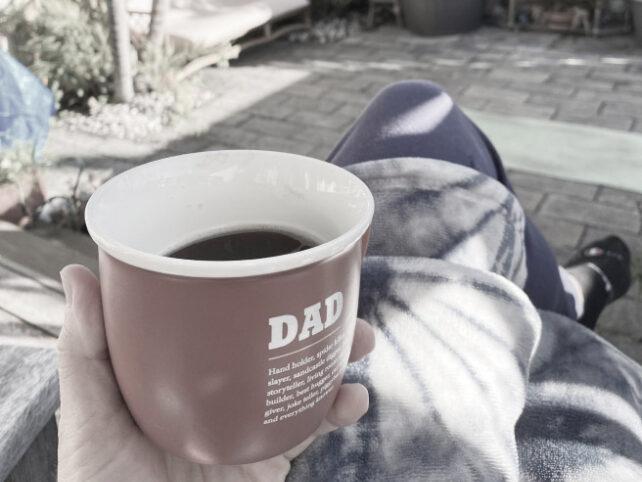Freebie Info-graphic Download For This Process
To be triggered is to have an emotional response disproportionate to the stimulus.
Examples include: social anxiety, waves of anger or workplace fear.
Sometimes, mindfulness isn't enough to deal with these situations.
We need to dig into our operating system and find out what's making us tick.
How?
Through self inquiry around identifying and letting go of BELIEFS - the unconscious hardware causing this to happen.
In this video, I outlined the process to do this. If you haven't already, watch it now to get context around this incredibly powerful practice.
After watching it,
Download the free info-graphic I made for you onto your phone for reminders on:
- How to undergo this process.
- Powerful Inquiry prompts to enable this process.
I recommend downloading it onto your phone where it can be readily accessed.
This will be a valuable resource to you when you are first getting the hand of this practice.
It's easy to forget how to go about it skillfully, so referring to this cheat sheet will fix that.
My Notes on Awake: It's Your Turn
Below are my comprehensive notes I summarized from Angello Dilullo's chapter on Beliefs for those of you who want more detail beyond the scope of the video I linked earlier.
While perhaps messy, they provide a curated form of the subject matter in the book.
Those who are able to let go of beliefs wake up quickly
To undergo the process of awakening and be unwilling to let go of beliefs is to be ensnared in mind identification.
Those who are willing to ruthlessly examine and let go of beliefs, no matter how uncomfortable - wake up the fastest.
What is a belief:
An acceptance that a statement is true or that something exists.
But a belief is basically a thought.
If we can see our beliefs clearly, they are seen as thoughts that can be disidentified from. But only when they are seen clearly.
Beliefs are somewhat hidden.
We may be partially or completely unaware that we hold a belief.
Beliefs remain hidden because:
-
We set an overt belief, such as 'I'm a successful person' which hides an underlying belief such as 'I'm never good enough'. When the belief 'I'm never good enough' is revealed, we are dismayed by it. Therefore, it almost serves as a pain avoidance/survival mechanism.
-
The belief is so fundamental to our view of reality that we wouldn't ever consider questioning them. For example, if we were brought up with family religious values such as beliefs such as 'God is a man in the sky', we may take that to be the ultimate truth and never question it.
Angello says that these are the beliefs, that when questioned and dissolved often leads to incredible degrees of freedom and intimacy that usually occurs in later stages of realization.
A belief makes assumptions
We often might believe that an uncomfortable five minute interaction could very well 'ruin our day'.
But what is a 'day' other than a thought? Can we put boundaries around it in the ultimate sense of reality like we can a hot piece of food that will soon cool down? No.
So rather than an interaction 'ruining our day' - when we look at it more closely, what's actually happening is this: We're frequently recalling (in thought) reactions to that event that propel mind-identification and emotional upheaval. We then assume that interaction is what ruined our day - but really, it was recurrent mind-wandering and self identification with those thought/emotional objects.
The quality of my interactions with other dictates how I feel throughout the day
We can pick up energies from others, but this doesn't have to linger beyond the scope of the interaction.
Deep presence with whats arising and passing can enable us to feel what's there, and beyond the interaction let go of it without any ties IF we are willing to question beliefs.
We can choose to walk away bitter, resentful, angry. OR we can feel grateful its over, free and excited to see what the next moment brings now we have been fully released into presence again.
It's important to reflect on the conversation I had this morning.
Angello puts forward: Is it? What would happen if you simply let go of that thought/memory/conversation? What would happen if you let go of the past altogether?
I can't let go of that conversation this morning:
What is the cost if you believe this thought? If you buy into this thought, where does your attention go next?
Often, we'll likely find that if we entice thoughts they'll rocket off into directions of animosity/judgement/overanalysis ect when our 'resources' could otherwise be invested in the freedom of the present.
Some beliefs feel personal.
If we hold the belief: Chinese is better than Indian, and someone thinks vise versa - most won't be offended.
But if we hold the belief: Trump is a great president, and someone believes Biden is - these beliefs are heavily entangled in identity and who we take to be 'I'.
When we see even thouse more 'loaded' beliefs as thoughts, we're well on the way to dis-identification and more freedom.
How beliefs are formed.
Well, it's not like someone pulled us aside at a young age and instilled into us what we'll believe.
Beliefs just accrue dependent on our circumstances. At no stage did someone at a young age approach us and ask us: what do you want to believe? No, they were just accrued from causes and conditions.
Mirroring
We accrue beliefs from behavior/communication mirroring.
This largely stems from childhood, especially from parents.
Our conscious experience (thoughts, identity, beliefs) are constructed here.
A House of Cards
Beliefs are like a house of cards.
We might deconstruct one of the top layers of cards and find some relief.
If we continue to collapse the deeper beliefs (even those that seem so grounded in reality that we wouldnt' dare to question them) as to collapse the whole deck, then we are rewarded deeply with immense freedom. But only if we choose to go there.
Meta Beliefs
The one belief that has tremendous influence on our experience of ourselves and our life that dictates our ability to learn, grow and adapt to life circumstances that is both empowering.
It's a belief that is often not taught.
It's a belief that immensely accelerates awakening and grants an extraordinary ability to adapt and respond fluidly to life circumstances.
Those without it struggle with lots of resistance to life.
The belief is this:
Our fundamental stance regarding beliefs themselves. It's a belief about the value of recognizing, examining and questioning our own beliefs.
Here are the two polarities of the belief.
EMPOWERING: I believe that it is valuable, safe, and worthwhile to examine my beliefs. If a belief is found to be inaccurate, without evidence to support it, and/or causes perceptual distortion, I'm willing to discard it."
DISEMPOWERING: "I believe it is not a good idea to examine or question my beliefs. It could even be dangerous. To change a belief is to compromise myself in some way. Even a belief that appears to be inaccurate, without evidence to support it, or causing perceptual distortion, should not be discarded."
Analysis:
-
Do you generally fall on the empowering or disempowering end of the spectrum?
-
Aer there certain areas of your life where you are more likely to hold the disempowering polarity?
-
How much freedom would there be if you were to release yourself from the apparent need to defend your beliefs, views and positioning?
-
EXERCISE: Reflecting on beliefs.
-
Do I believe there is something taboo about examining or discussing beliefs? Is it taboo to me personally? Are there taboos against it in society? With friends? With loved ones?
-
Do I believe some beliefs are better than others?
-
Do I believe certain beliefs are so obvious that they are unquestionable?
-
Do I believe that Beliefs define who I am?
-
Common Meta-beliefs
Points of inquiry:
Can I think of an example in my life where this belief was demonstrated to be not true?
Can I find support for this belief here in my immediate experience?
- Having strong beliefs makes me a strong person
- A person is defined by his beliefs
- By purposely choosing to believe something, I will make it true.
- A person should never compromise their beliefs.
- Religion and Spirituality are about what beliefs we have in common with others in a group.
- If I don't have strong beliefs, I'll be easily fooled or manipulated.
- Without beliefs, I'll get nothing accomplished.
Angello points to how even these Meta-Beliefs can be deconstructed.
'If we are willing to consider the possibility that a meta-belief might be far more limiting and distorting than it looks on the surface, it can be profitable to inquire into your stance regarding that belief'.
A Case Against Beliefs
Beliefs are tied to doubt
Any time we feel certain about something, the opposite polarity of uncertainty is already cooking in the background. We will inevitably feel doubt in the future.
Beliefs Can Cause Us to Act in Unconscious Ways
Beliefs hijack our consciousness and distort presence into maladaptive behaviors.
Sometimes it's just a thought-less stream - of disassociated consciousness.
It overrides our spontaneous action, empathy and presence.
WHEN we become conscious of unconsciousness, we can investigate the belief or the emotional side. Both will need to be done over and over to dampen the intensity and graduate toward more presence.
Realization and Belies
Realization is deepening our dissolution of beliefs.
Some take this up as a primary practice - dissolving beliefs. Others do it tacitly when they arise. It's up to us.
Deep Belief Complexes
- I am separate from the senses
- I am in here, and the world/my life is out there.
- A thought, belief or identity has control over the apparent external world.
- Feeling "in control" is what I really want.
- Time exists
- Distance exists
- One thing can't be everything
- Things are one way or the other
- One side can't be both sides
- There is substance, solidiity and continuity
- Suffering is necessary.
Relative Beliefs:
When examining beliefs, we're specifically looking at those wrapped in our identities. We don't have to get analytical about:
- The year is 2021
- The proper dose for aspirin is 81mg ect.
- I like pizza.
Sacred Beliefs
We can really let all beliefs go.
We will be taken care of.
Life has amazing ways of supporting us when we decide to let beliefs go.
"Holding the position that it's good to dissolve "bad beliefs" am replace them with "good beliefs" is unnecessary and will lead to confusion down the road.
There is absolutely no belief that is too sacred for scrutiny.
The more fundamental and preconceived or hidden the belief is, the more profitable it can be to examine it.
RECOGNIZING BELIEFS:
Until awakening, we are often ensnared in distorting beliefs.
But until that point, it can be helpful to detect when we are operating from a belief - especially one having immediate and distorting effects in consciousness.
SIGNS OF BEING STUCK IN BELIEF:
- A feeling of stuckness, especially in the mind. If we find ourselves ruminating or stuck in a stereotyped, repetitive thinking circuit, there is almost certainly a belief (or multiple) operating to keep it going.
- A feeling of rigidity or inflexibility to life circumstances. If I'm having difficulty adapting to certain situations, there are likely a few beliefs (probably competing) hiding just beneath the surface.
- Strong sense of ambivalence about certain situations or in general.
- Righteous Indignation (Feeling angry/insulted from perceived mistreatment from another)
- Arguing
- Refusal to see, or fear of seeing someone elses point of view.
- Fear of having your beliefs manipulated
- Addictive Behavior.
Working with Beliefs.
Develop an interest
This sort of work is not the social norm so we have to give ourselves permission to do it.
INDIRECT METHODS:
Pairing meditation with belief investigation/inquiry can accelerate the process.
Asking for help
Surrender to a higher deity - giving it over to something higher than us.
Please, (higher power), I surrender. Please allow me to see beliefs, no matter how comfortable, that are obscuring and distorting my percept.
DIRECT methods
Direct investigation:
- Choose any belief that comes to attention, especially those related to recurrant emotional difficulty.
- State it as clearly as possible in words
- Feel into it - how does it make you feel? Can you get closer to it.
- Inquiry questions:
- Where is this belief rooted?
- Can I remember a time when I started to believe this? If so, was it relevant or adaptive at that time in my life?
- Is it still relevant?
- What does this current experience feel like without that belief?
- If so, can I move closer to the physical experience of that emotion in my body?
- Can I fully acept that this belief is here and that it is a single thought?
- What does that acceptance feel like?
- What does it feel like if I let go of the need to make this belief either true or false?
- In what ways can this belief limit me?
- What has believing this cost me?
- Are there times when I believe the opposite.
When you feel stuck (Inquiry prompts)
- what belief am I holding onto?
- What belief is operating in the background?
- What am I assuming to be true right now?
- What belief am I not seeing?
- What am I resisting?
- What am I avoiding?
Sometimes the answer comes instantly and is specific.
Sometimes it can take a while for things to loosen up.
Disentangling the web
Take any belief and look deeper. This is a good way to get to the roof of beliefs.
Look for evidence in direct experience.
A good question to ask is this:
Can I find any evidence to support this belief being true in my immediate (direct) experience?
The key to this type of work is consistency and a willingness to revisit a belief and continue to inquire until the belief is dissolved. This usually comes with a release of the sense of fixation around that belief, situation or circumstance.





